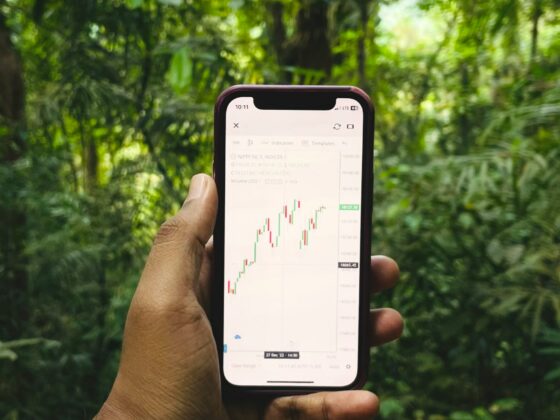
Loyalty programs have traditionally been built around frequency: the more you travel, the more you spend, the more rewards you earn. That’s why, for decades, strategies have centered on business travelers who deliver predictable volume. But in today’s travel economy—shaped by shifting demand, generational turnover and new booking behaviors—that model is increasingly misaligned with where growth is coming from.
According to the Boston Consulting Group, leisure travel is expected to triple from a $5 trillion market in 2024 to a $15 trillion one by 2040. Gen Z and Millennials, those born between 1981 and 2007, are leading that growth. They already account for a rising share of U.S. leisure trips and spend a higher portion of their income on travel than previous generations. But they don’t behave like traditional loyalty customers.
Some travel often but spend modestly. Others take fewer trips, but spend heavily on bundled experiences, vacation rentals or cruises. In both cases, they fall outside the conventional points-for-stays model, which undervalues high-spend, low-frequency members and rarely supports the flexibility that modern travelers expect.
Consider two modern travelers. One is a Millennial loyalty member booking a family trip: she wants a vacation rental that sleeps six, to redeem points on a car rental and purchase museum passes—all in one place. Her younger brother is planning a cruise with friends and prefers bundled booking and a payment plan. Neither fits the legacy business-traveler profile, but both reflect today’s increasingly dominant booking patterns.
A recent report from arrivia, Loyalty and the Changing Traveler, illustrates just how far loyalty systems must evolve to stay competitive. Based on a survey of more than 1,000 U.S. travelers, the report reveals deep generational differences in how people plan, book and prioritize their trips. What do those differences mean for hospitality and loyalty decision-makers?
Loyalty Platforms Can’t Afford to Be Generic
Loyalty has historically assumed that members behave similarly: they stay in hotels, book flights separately and accumulate points over time. But the arrivia data shows otherwise.
Millennials increasingly prefer vacation rentals. Gen Z wants to book everything in one transaction—accommodations, transportation and experiences. Zillennials (born 1992–2002), a rising bridge cohort with discretionary income to spend, are leaning into cruise, car rentals and international travel. These preferences demand greater flexibility across inventory, booking formats and redemption models.
Delivering that flexibility requires the right architecture. Platforms need modular back ends that can integrate multiple booking APIs and draw on diverse data sources to support real-time personalization and full-trip planning within the loyalty ecosystem.
Engagement Is Falling Behind Despite Rising Demand
While 55% of Gen Z and 42% of Zillennials plan to travel more this year, only 18% of respondents across all age categories booked their last trip through a loyalty program. Most turned to online travel agencies or direct vendor sites instead. It’s not necessarily a bad thing for a customer to book a hotel stay directly, but when they do it through their loyalty program, there are opportunities to drive more revenue from that booking while also increasing engagement, and ultimately, customer lifetime value.
To capture that business, rewards programs must replicate OTA functionality while adding differentiated value into the mix. Though 55% of respondents said better prices and discounts would improve engagement, younger travelers also want more options, better discovery tools and smoother group planning. Nearly 45% of Gen Z would be more likely to book travel through their loyalty program if it included a broader range of destinations. Many also want the ability to book activities and experiences, are incentivized by sustainable options and are looking to redeem points across categories in one elegant transaction.
Booking Behavior Has Changed. Personalization Must Follow.
Another key finding from the report: booking windows vary significantly by generation. While most travelers book one to four months in advance, Gen Z is more likely to book closer to departure, usually one to two months ahead. If loyalty offers and communications aren’t aligned with these compressed windows, conversion can suffer.
At the same time, younger travelers are far more likely to plan trips with others such as siblings, parents and friends. That adds operational complexity to the booking process: shared payments, multi-user itineraries, price-sensitive decision-making and dynamic group sizing.
These aren’t special cases; they’re becoming the norm. Loyalty platforms must be able to deliver personalized, contextual offers that account for timing, party composition, spend behavior and product preferences. Static systems built around hotel nights and top-tier perks can’t meet that need.
Why It Matters Now
Travel preferences aren’t just evolving between generations—they’re splintering within them. Zillennials, who share traits with both Millennials and Gen Z, are a prime example. Just 36% cite cost as the main reason for travel hesitancy, compared to 61% of Millennials and 66% of Gen Z. But they are more likely to cite fear of flying, sustainability and travel bans as key concerns.
For CMOs, CIOs and CTOs in the hospitality space, the mandate is clear: if your loyalty platform can’t flex around how travelers book today, it won’t be positioned to compete tomorrow. Understanding how travel behavior is shifting offers a strategic roadmap for loyalty leaders to plot their next steps. As booking patterns, group dynamics and product expectations grow more complex, loyalty systems will need to reflect the full trip lifecycle—not just reward a narrow slice of it.
ABOUT THE AUTHOR
Jeff Zotara is the Chief Marketing Officer of arrivia, a travel technology company offering loyalty, booking, and marketing solutions to top brands like American Express, T-Mobile, USAA, Bank of America, Marriott Vacations, and Hilton Grand Vacations. With over two decades of experience, Jeff drives growth and innovation for arrivia, overseeing a customer data platform and personalization engine that leverages big data and machine learning to deliver advanced capabilities to millions of members and hundreds of clients. He helps arrivia’s partners create memorable member travel experiences while enhancing their customer acquisition, engagement, and retention, and fostering a strong corporate culture among arrivia’s 2,400 employees across nine countries.









